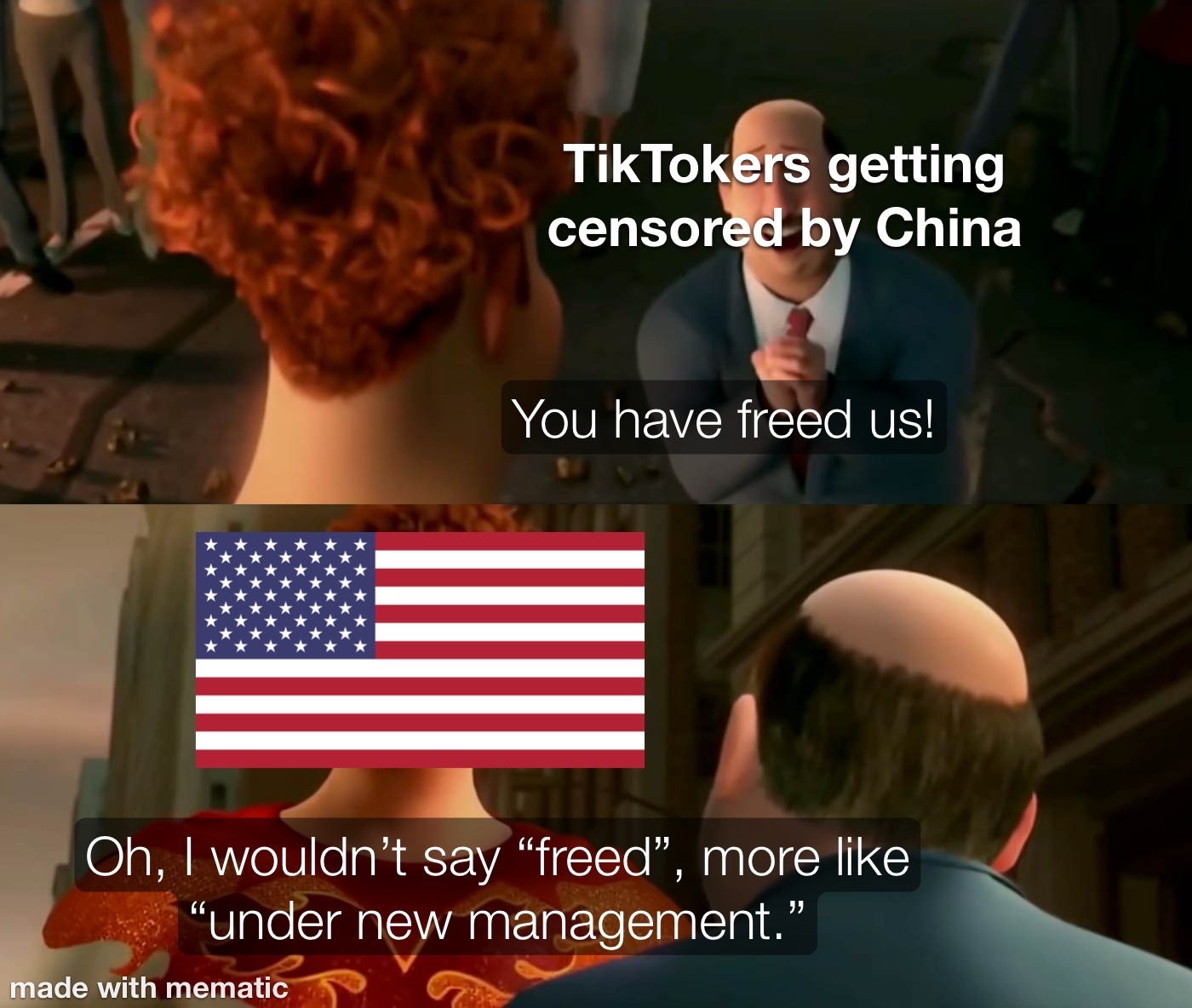this post was submitted on 25 Apr 2024
294 points (87.5% liked)
memes
10327 readers
1736 users here now
Community rules
1. Be civil
No trolling, bigotry or other insulting / annoying behaviour
2. No politics
This is non-politics community. For political memes please go to [email protected]
3. No recent reposts
Check for reposts when posting a meme, you can only repost after 1 month
4. No bots
No bots without the express approval of the mods or the admins
5. No Spam/Ads
No advertisements or spam. This is an instance rule and the only way to live.
Sister communities
- [email protected] : Star Trek memes, chat and shitposts
- [email protected] : Lemmy Shitposts, anything and everything goes.
- [email protected] : Linux themed memes
- [email protected] : for those who love comic stories.
founded 1 year ago
MODERATORS
you are viewing a single comment's thread
view the rest of the comments
view the rest of the comments

They are all biased, often deliberately so. Whether you think the US forcing ByteDance to sell TikTok to a US company will have a positive outcome or not, the reason the US is doing it is so they have control over the information being shared on TikTok instead of China. The method the US uses to control information is different from China but no less effective. It's arguably more effective because the passive manipulation of information the US carries out is less transparent, making it harder to determine exactly how the narrative is being manipulated.
Okay?
Literally none of that has anything to do with there being three different things.
Showing someone videos related to ones they like is different from suppressing or promoting videos with content your company has reason to want suppressed or promoted, which is different from the government doing or compelling others to do the same.
The point I'm trying to make is that this:
Is most often a trojan horse for this:
Which is basically the same as this:
But more passive and less transparent.
Alright. I understand your point. I don't believe there's as much coordination as you do, but that's fine.
Do you understand what I'm saying, which is that there are three different things? And that a person saying "as long as there's an algorithm there's censorship" might be conflating some of those categories? Lemmy sorts and tries to present relevant data, but I have no reason to believe that it's engaged in explicit or implicit state level censorship or propaganda.
I think we're pretty much in agreement, as I don't think corporate censorship and propaganda is coordinated so much as it is aligned towards similar interests. This lack of coordination can actually be a strength though because it creates divisions that can then be levaraged by the same corporations towards their aligned interests (such as suppression of labor organizing). I believe this element of division actually makes censorship/propaganda in the US more effective - at least in some ways - than the censorship/propaganda of more autocratic regimes.
Of course US oligarchs don't have the same tight control over the sharing of information that oligarchs in autocratic regimes do, as evidenced by the existence of platforms like Lemmy, but as long as the alternatives remain small and ineffectual it doesn't matter. TikTok is not small and ineffectual, and by nature of it being owned by a Chinese company is free from manipulation by US oligarchs. This resulted in narratives that the US wants to suppress (such as pro-palestine/anti-israel narratives) being widely disseminated on the platform. This is the main reason TikTok is being forced to sell to a US company.